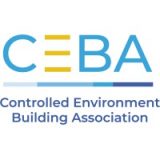Polished Concrete Floor Bid Specifications for General Contractors
Polished Concrete Floor Bid Specifications for General Contractors, Explained
When specifying criteria for polished concrete floors during the bid specification process, understanding the gray area can make all the difference as a GC
As a general contractor, when putting together polished concrete floor specifications for the bidding process on any commercial or residential installation project, it’s important to understand that several key components are often left off the specification criteria or buried in other more ambiguous code categories, or worse, not included at all. Make sure you don’t get caught ignoring these critical components. Whether you are an architectural firm, designer, engineer, or general contractor, put the odds of a successful bid process in your favor by being extra thorough in the bid specification creation or submission phases.
Although it can be said that the specification of polished concrete floor products within the polished concrete floor bid process, especially the enhancers, is somewhat still “The Wild West”, that is now changing. The American Concrete Institute’s (ACI) Decorative Concrete Committee 310 is currently in the final stages of developing a more robust and comprehensive set of criteria to define a great many more product categories and sub-categories to make the specification, and in turn the production of polished concrete floors, more comprehensive and complete. Better specifications lead to better performing polished concrete floors. Until these specifications are accepted and published, it’s in your best interest to understand where the current pitfalls are with regards to polished concrete floor specifications. As more and more applications call for polished concrete floors, everything from high end residential builds, to retail floor design, to large scale robotic warehouses in need of a highly refined finish for performance, the need to refine specifications, and provide for a high level of finish becomes critical. Getting it wrong, or failing a post floor finish inspection in terms of performance, gloss or clarity can be catastrophic. Avoiding this scenario and mitigating any post project completion risk in terms of brand equity and financial obligation can be addressed by understanding a few small specification clarifications.
When it comes to polished concrete floors and their specifications, much of the focus is on the concrete itself and the grinding processes used to obtain a desired level of finish. This is true of course for stained, dyed, or natural polish floors. Standards sometimes address the group of “enhancers” needed to perform the task at hand, but in many cases, and more often than not, they don’t. Listed below are the CSI MasterFormat specification numbers pertaining to polished concrete floors that are most frequently used.
03 35 43 Polished Concrete Finishing
03 35 43.13 Polished and Dyed Concrete Finishing
03 35 43.16 Polished and Stained Concrete Finishing
When it comes to joint fillers, densifiers, and pit grouts, the following CSI numbers are available, but often not used.
03 01 30 Maintenance of Cast-in-Place Concrete
03 01 30.71 Rehabilitation of Cast-in-Place Concrete
07 91 26 Joint Fillers
07 92 16 Rigid Joint Sealants
Further, the CSI codes for the repair and maintenance of polished concrete floors, albeit somewhat ambiguous, are;
03 01 30 Maintenance of Cast-in-Place Concrete
03 01 30.71 Rehabilitation of Cast-in-Place Concrete
When it comes to the enhancing products to be applied during the grinding and honing phases of the finishing process, in most cases they are not directly specified, but generally mentioned. In the absence of a more detailed specification process such as the one soon to be published by ACI 310, a more comprehensive process for specification would include at the very least using the codes for joint sealants and fillers noted above, and further specific notations as to the products and processes required. Not all joint sealants, densifiers and pit grouts are created equal, so noting a stalwart manufacturer like Metzger\McGuire and their products is a first great step to ensuring the finished product is as reliable as possible.
Just exactly how important are joint sealants, densifiers, and pit grouts to the finished product? As important as the grinding and polishing processes themselves.
In the production of polished concrete flooring, the addition of enhancers should be considered just as critical as the grinding and honing process during specification. Understanding the importance of these enhancers during the bid specification creation or bid process can be extremely beneficial to the end product.
Joint Sealants
Joint sealants in polished concrete floors are specified for a variety of critical challenges.
First they provide a better aesthetic appearance, and with Metzger\McGuire’s wide range of color options it’s easy to find a color specifically designed to match to a large variety of stain and dye systems.
Additionally there are several functional benefits to using joint fillers during the grinding and honing process. Using joint fillers during the honing process also greatly reduces the chances a diamond tool will catch an edge and damage it, potentially requiring further costly floor repair and ongoing maintenance.
Joint fillers also provide ongoing protection for edge degradation from either wear or damage from external forces, such as edge impact.
Finally, when it comes to floor hygiene, it’s critical to consider the housekeeping and sanitization impact of your finished polished concrete floor. When you seal a joint with properly specified joint filler you are mitigating any long-term hygiene issues that may arise as time goes on. Unfilled joints, or improperly filled joints become a cleaning challenge making the process of cleaning debris, dirt, and worse, nearly impossible from the finished floor joints. When left unchecked, even harmful bacteria can be left to propagate, leading to even bigger challenges. When it comes to joint filler, an ounce of prevention is truly worth a pound of cure.
Metzger\McGuire Joint Filler Products Applicable to Polished Concrete Floor Finishing
Spal-Pro RS 65
RS 88
Edge-Pro 80
Chemical Densifiers
These products chemically react with the free lime in the concrete to close off pores that are opened during the grinding process and yield a tighter and more resilient surface matrix. Densifiers are used for the finest of pores and are not applicable for large “pitting”
Metzger\McGuire can recommend products in this category
Pit Grouts
Pit Grouts are used to fill in tiny pores, sand roll out, etc. that can be created during the grinding process. These are surface defects that chemical densifiers are not formulated to resolve. This would essentially be considered an enhancement during the process and is done during the grinding (or honing) steps. If a floor is not “fine grouted” during this process, the finished result, no matter how high in grit the floor is ground to, will be compromised as the overall gloss and clarity of the finished floor will be reduced due to any surface pits or holes left in the surface.
The main measurements for polished concrete are gloss (SOGV) and clarity (distinctness of image or DOI). Both are measured using a device that bounces light off the floor at an angle to a second lens, which in turn determines how much of the light is lost in that bounce. If there are any pits or defects in the surface – no matter how small – that reading will be reduced. Grouting products should be specified in the actual polishing process as due course to maintain the integrity of the finished floor.
Metzger\McGuire Pit Grout and Surface Fillers Applicable to Polished Concrete Floor Finishing
Repair, Maintenance, Reconstruction & Refurbishment of Polished Concrete Floors Including Repair in New Floor Finishes Due to Defects and Poor Workmanship
When it comes to the repair and maintenance of polished concrete floors there are a couple of specification codes used to encompass the process and products involved within the process. Repairs and reconstruction may be necessary on both old and new floors.
Quality and qualifications vary widely when it comes to concrete finishers and often the finished product of a new floor contains defects such as cracks, embedded foreign objects like pallet remnants and cigarette butts, as well as a variety of other defects. These defects often require the rebuilding of edges, filling of major gaps and more. Old floors often have remnants of these original construction defects, and will also additionally harbor wear and tear issues such as broken and worn edges, deep flat surface gouging, spalling and more. Products to repair these defects vary greatly and understanding which product is necessary to properly address any issue is paramount to the successful repair and reconstruction of any polished concrete floor.
Metzger\McGuire is the industry leader in not only industrial joint fillers, but reconstruction or repair products as well. Products in our line that can be used for these floor defects include our industry leading low viscosity structural polyurea products.
Rapid Refloor
Rapid Refloor XP
SRG
Navigating the ambiguous construction, repair, and maintenance specifications for polished concrete floors can be complex and confusing, but it doesn’t have to be! Call or email Metzger\McGuire today and let our knowledgeable technical staff assist you in writing your bid specification or help you in preparing your bid response to the same.
Here are a couple of samples for polished concrete floor bid packets outlining a comprehensive approach to the specification process for both a new polished concrete floor design and installation as well as a refurbishment and remodel of an old polished concrete floor to assist in your bid packet creation or response
Metzger\McGuire looks forward to helping you navigate the polished concrete floor specification process! Call 1-800-223-6680 today and let a specialist lend a hand.
About Metzger\McGuire
When it comes to the specification and use of industrial expansion and control joint fillers, crack and joint edge repair products, as well as surface preparation materials like fine grouting products for the construction, repair, and maintenance of polished concrete floors, including those stained and colored, Metzger/McGuire has been setting the industry standard for 50 years.
Metzger/McGuire – Known by the Floors We Protect
Our concrete floor products have been specified in, and utilized on, countless construction projects over the decades by some of the world’s most respected architects and construction companies. Many of the world’s most recognizable brands have historically and continue to trust Metzger/McGuire products to protect and enhance their workplace, retail, showroom, warehouse and office floors. Brands like Amazon, WalMart, Target, Costco, Ford and many others, have recognized the value inherent in protecting their floors with the world’s leading concrete floor construction and repair products.
Metzger/McGuire has earned a market leading reputation by providing top quality products, exceptional customer service, the industry’s deepest technical expertise, and consistently high quality color matches for that perfect finish when it comes to industrial joint fillers and concrete floor repair products for all types of concrete flooring.
When it Comes to Color Matching Technology, Our Floor Products Truly Shine
Having pioneered semi-rigid joint fillers almost 50 years ago, including color matched industrial joint fillers, Metzger/McGuire can offer you consistently high color matches for all of your stained and polished floors. Whether you need a custom color match, or choose from a large variety of our semi-custom off the shelf colors, you can be assured that you’ve made the best investment in your polished concrete floor’s protection and serviceability. With Metzger/McGuire as your partner, the finished product is guaranteed to be both functional and beautiful.
Metzger\McGuire looks forward to helping you navigate the polished concrete floor specification process! Call 1-800-223-6680 today and let a specialist lend a hand.







